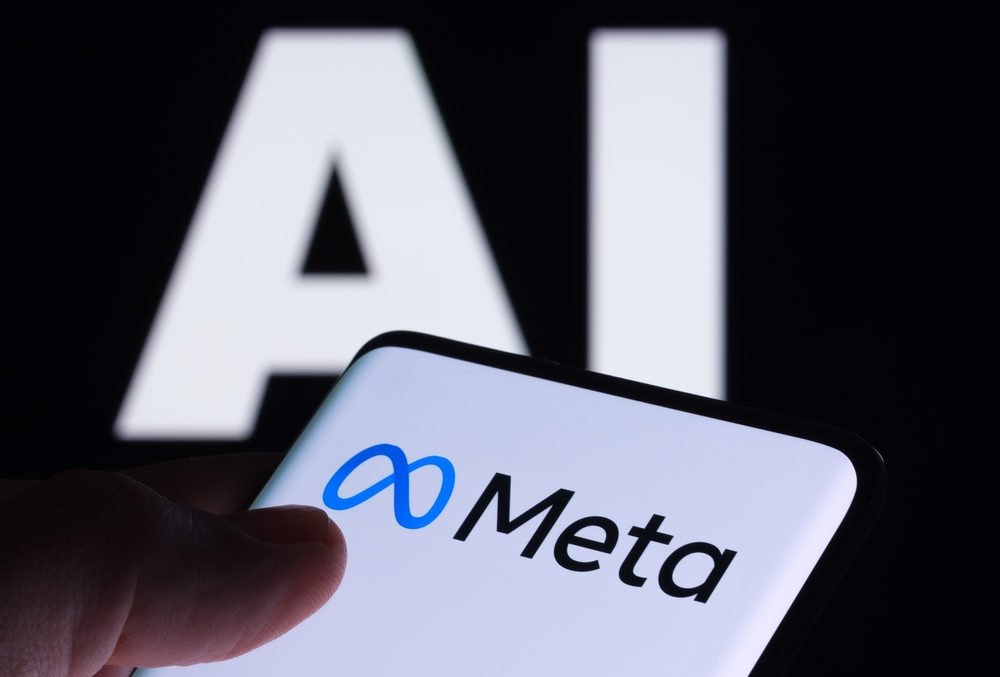Meta has, in its recent announcement, confirmed integrating artificial intelligence (AI) in its applications, including Facebook, Instagram, Messenger, and WhatsApp. Meta unveiled Imagine Tool as a standalone image generator, allowing users to create AI art.
The autonomous Meta AI involves a virtual assistant uniquely designed to allow the generation of photorealistic images. It facilitates users with detailed responses to the queries, thereby becoming even more helpful with accurate summaries of mobile search results.
Meta, in the Wednesday, December 6 blog post, confirmed the addition of over 20 AI-driven features to its application. The addition is set to upgrade multiple functions to better business communications and social media experiences.
Meta AI Evolving via Additions Boosting Messaging Experiences
The Wednesday statement indicated that Meta AI is evolving through additions to boost its messaging experiences. The AI integration is set to benefit the scenes, thereby powering smart capabilities.
Meta also unveiled Imagine described as the standalone image generator that utilizes the EMU power. EMU involves the Meta’s model translating native text to image. It eases the user’s capability of creating multiple images, thereby rivaling Stable Diffusion and DALL-E 3.
The Meta AI was initially designed to run within the chat applications, though it is now broken into a web-based tool. The new design allows it to compete with the leading models in the AI industry directly.
Meta indicated that its built-in Marketplace will enable sellers and vendors the alternative of leveraging generative AI to better user experience. By doing so, it targets giving individuals multiple options for the English-language markets.
Meta indicated that it yields AI-generated suggestions for community chat and post comments. Besides, it accommodates serving search results and enhancing product copy in shops.
Meta indicated that Imagine and generative AI experiences would remain unavailable for users within Argentina, Mexico, and Brazil, as indicated in an official publication in Portuguese.
Meta is set to integrate invisible watermarking on the images generated using AI tools to foster transparency in the content. While the initiative to watermark hardly guarantees a robust solution for identifying AI-generated content, it portrays Meta’s commitment to addressing potential misuse.
The new AI capabilities are attracting positive reviews, with the Huggingface Co-founder Julien Chaumond indicating the generations are pleasant. The co-founder of the global leading community for Open Source AI admitted logging in to the Facebook account to try the AI-integrations.
Meta Affirms Commitment to Rollout AI Experiences
Meta announcement iterated the tech titans’ devotion to sustaining the rollout of multiple AI experiences across the app portfolio. It referred to the rollout of Llama, its version of a large language model (LLM).
Meta rollouts feature the research upgrades in Emu Video and Emu Edit. The pair aim to enhance the functionality within Meta’s products in 2024. Such target enhanced performance in hardware powering the virtual reality (VR) and augmented reality (AR) applications.
Meta AI is set for utilization in augmenting the user experience across Facebook and Instagram. Also, the content creators are testing the AI-generated suggestion for messages within the direct messages when leveraging the Llama text generator.
The feature has a unique design to ease creator-audience communication by formulating responses aligned with the creator’s style.
AI is integrated into delivering personalized greetings, content suggestions, and editing posts on multiple platforms. The usage is evident in Marketplace and Groups.
Extended Memory Gives Meta AI Superior Capability and Usefulness
Meta illustrated that the AI model features a long-time memory, thereby giving it superior capability and usefulness. Besides, it promises to resolve the primary challenge in long interactions with the AI assistants and characters that depend on the LLMs.
Meta targets integrating the Multi-round Automatic Red-Teaming (MART) into the AI models. The technology is training adversarial models to assist Meta in the detection of harmful, fraudulent, and offensive content.
Its accomplishment involves facilitating the models to compete against each other as they evolve and realize superior capability.
The AI integration comes after Meta revealed the dissolving of the responsible AI team. The Mark Zuckerberg-led Meta would instead decentralize the unit into various departments handling AI development.
